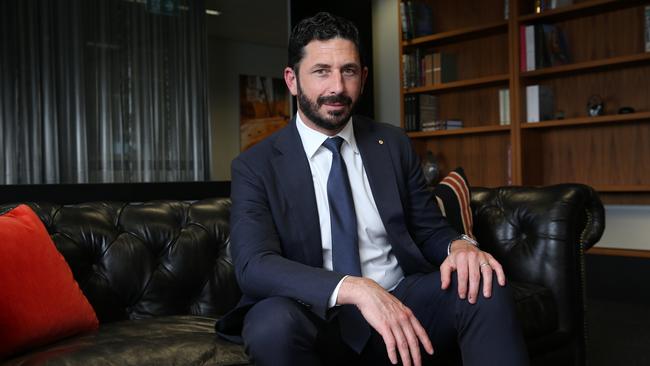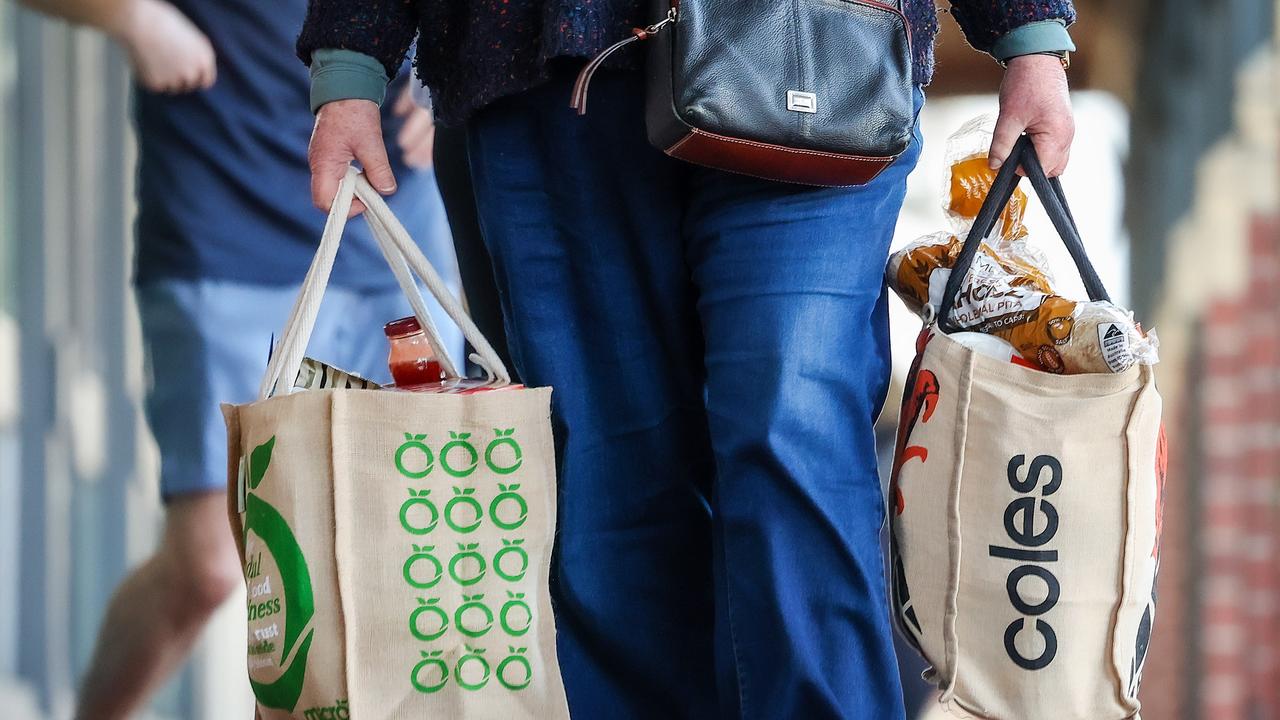Seven Group’s Ryan Stokes says there’s a ‘high’ risk of a house price correction in 2024
Falling house prices this year could be the biggest disrupter to the mining, media and construction empire of Ryan Stokes, the billionaire has told The Australian’s 2024 CEO Survey.

Billionaire businessman Ryan Stokes, who runs his family controlled Seven Group Holdings, says the biggest disruption to his mining, construction and media empire is the prospect of falling house prices in 2024.
Mr Stokes said the “dramatic increase” in the cost of capital resulting from the Reserve Bank’s decision to raise the cash rate by 40 per cent last year alone, and at the “fastest rate rise” in the nation’s history over 18 months, is inflicting pain on households.
“The disruptive impacts that concern us relate to the economic transition that is under way, as we pivot from a low to a relatively higher rate environment, and the consequential impact that will have on households,” said Mr Stokes, speaking as part of The Australian’s 2024 CEO Survey.
“We anticipate the risk of a housing price correction is high, and need to be prepared for what that might mean.”
Seven Group has multiple exposures to households through construction company Boral, equipment hire company Coates and through appetite for advertising at its Seven West Media company that owns the Seven Network and newspaper The West Australian.
Fears about what may lie ahead did not stop Seven Group having a bumper 2023, with its shares rising 75 per cent over the past 12 months on the back of the turnaround performance of Boral and consistent strong returns from Caterpillar dealer WesTrac.
But Mr Stokes said the much anticipated house price crunch, which many housing specialists thought would come last year, might come this year.

In 2023, property prices reached record highs in some cities and near record highs in others such as Sydney. However, the rate of price rises eased towards the end of the year, particularly in cities such as Melbourne, according to CoreLogic, and in Sydney, with auction clearance rates also falling from the same time in the previous year.
“Given the aggressive pace of the cash rate increases, the pain it has inflicted on households is deeply concerning, and we are yet to see the full impacts of the increases already implemented,” Mr Stokes said.
The RBA’s decision to raise the cash rate so quickly – it now sits at 4.35 per cent – would be linked to a contraction in economic growth, he predicted.
Mr Stokes said the RBA had two levers within its monetary policy arsenal – the cost of money and the supply.
Unfortunately, he said, “there is a greater inequity in the impact of the cost of money,” meaning that rising interest rates hit low-income households more than high-income ones.
“Ultimately, successful execution of monetary policy to manage the economy should ensure the action does not cause greater harm than the original issue itself,” Mr Stokes said.
Increasing the cash rate, which the RBA has done to try to bring the inflation rate down, can increase inflationary pressure if suppliers pass on costs.
“The key area to watch is the mortgage stress and increasing foreclosure risk,” Mr Stokes said. “Given the current challenges with housing affordability and rapid increase in mortgage costs, the situation is precarious for consumers.”
In the longer term, the structural undersupply of housing and rapid population growth should lead to a robust outlook for construction activity.
“However, we expect it could be a challenging 2024,” Mr Stokes said.
From a Seven Group perspective, Mr Stokes, the son of Kerry Stokes, said the overall outlook was positive, with a multi-speed economy to develop.
He said he believed the infrastructure investment pipeline would support the economy and ultimately increase productivity, which in turn would reduce inflationary pressure. He also described population growth as a positive economic driver.
“While the population growth has been rapid, our economy has required that incremental capacity to support growth,” he said.
“In addition to the strong long-term construction outlook, and productive infrastructure investment, our resource exports exposure will also help support the Australian economy.”








To join the conversation, please log in. Don't have an account? Register
Join the conversation, you are commenting as Logout